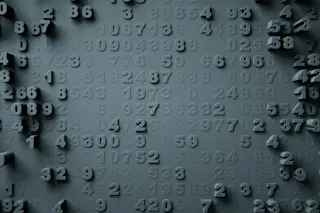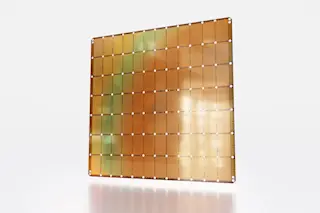"That's so random" is a common saying people use when they see or experience something unexpected. But as a concept in physics, true mathematical randomness has long proven elusive — until now. A team of computer scientists using quantum computing methods has, for the first time, generated a truly random number, they report in the journal Nature.
By now you’re asking yourself, what is “true randomness,” anyway? Doesn’t choosing a number between, say, one and a trillion, count as truly random?
Physicists would say “no.” Every existing seemingly random task still operates under physical or mathematical rules.
The ability to create randomness that can truly be proven as such is called certified randomness, and is more than an esoteric, mind-boggling mathematical exercise. It can, in theory, make encryption much more secure, or ensure that processes such as jury selection are truly fair.
Such certification it turns out, is as tricky ...














